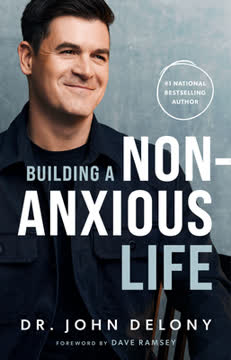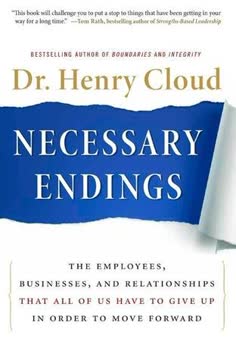Key Takeaways
1. Trust is the foundation of all relationships and success
Trust is the fuel for all of life.
Trust enables growth and prosperity. It is the cornerstone of personal relationships, business partnerships, and societal progress. Without trust, we cannot form meaningful connections, collaborate effectively, or achieve our full potential. Trust allows us to be vulnerable, take risks, and invest in relationships and opportunities.
Trust has tangible benefits:
- Improved mental and physical health
- Stronger and more satisfying relationships
- Increased business productivity and innovation
- Higher social cohesion and economic growth
However, trust is not always easy to establish or maintain. It requires conscious effort, consistent behavior, and the ability to recognize and respond to trustworthy individuals and situations.
2. We are biologically wired to trust, but must do so wisely
To trust is human and… when we can't trust, we lose a lot of the human experience.
Our brains are designed for trust. From infancy, we develop the capacity to trust through interactions with caregivers. This biological predisposition helps us form social bonds and navigate the world. However, this innate tendency can also make us vulnerable to betrayal and manipulation.
Balancing trust and caution:
- Recognize that trust is essential for human flourishing
- Develop the ability to assess trustworthiness in others
- Learn from past experiences to refine your trust instincts
- Understand that healthy skepticism can coexist with a willingness to trust
By acknowledging our natural inclination to trust while also developing discernment, we can harness the benefits of trust while protecting ourselves from potential harm.
3. The five essentials of trust: Understanding, Motive, Ability, Character, and Track Record
Trust is much easier to build, enter into, avoid, or repair if we know what to look for.
The trust framework provides a practical guide. By evaluating these five elements, we can make more informed decisions about whom to trust and to what extent.
The five essentials explained:
- Understanding: Does the person truly comprehend your needs and feelings?
- Motive: Are their intentions aligned with your best interests?
- Ability: Do they have the skills and resources to fulfill their commitments?
- Character: Does their personality and behavior demonstrate reliability and integrity?
- Track Record: Have they consistently demonstrated trustworthiness over time?
By systematically considering these factors, we can build stronger, more reliable relationships and make better choices in both personal and professional contexts.
4. Broken trust can be repaired through a structured process
Trusting again, once trust has been broken, is more than a decision. It is a dilemma—a choice between equally unfavorable options.
Rebuilding trust requires commitment and patience. While the pain of betrayal can be intense, it is possible to repair broken trust through a deliberate, step-by-step process. This journey involves both the person who broke trust and the one who was hurt.
Steps to repair broken trust:
- Heal from the betrayal
- Move beyond anger towards forgiveness
- Determine what you truly want from the relationship
- Assess if reconciliation is possible
- Evaluate the trustworthiness of the other party
- Look for evidence of real change
Each step requires honest communication, self-reflection, and a willingness to be vulnerable again. The process is often challenging but can lead to stronger, more resilient relationships.
5. Forgiveness is crucial for healing, but doesn't guarantee renewed trust
Forgiveness is the way you free yourself from betrayal.
Forgiveness benefits the forgiver. It releases negative emotions, reduces stress, and allows for personal growth. However, forgiveness does not automatically mean that trust should be restored. It is possible to forgive someone without continuing a relationship or granting them the same level of trust as before.
Key aspects of forgiveness:
- It is a personal choice and process
- It does not excuse or justify the betrayal
- It can occur independently of the other person's actions
- It is distinct from reconciliation or renewed trust
Forgiveness is a crucial step in healing from betrayal, but it should be accompanied by careful consideration of whether renewed trust is warranted based on the other person's actions and commitment to change.
6. Real change requires commitment and verifiable evidence
If you are going to be healthy, you have to forgive. Period.
Actions speak louder than words. When someone has broken trust, their promises to change are not enough. Real transformation requires sustained effort and demonstrable results.
Indicators of genuine change:
- Admission of wrongdoing and need for help
- Engagement in a proven change process (e.g., therapy, recovery program)
- Development of new skills and behaviors
- Willingness to be transparent and accountable
- Consistent positive actions over time
By looking for these concrete signs of change, we can make more informed decisions about whether to extend trust again. It's important to balance hope with realistic expectations and to prioritize our own well-being in the process.
7. Build your "trust immune system" to avoid future betrayals
We can learn some lessons about ourselves that will make us more immune to mistrust in the future.
Develop resilience and discernment. Just as our bodies have immune systems to protect against physical threats, we can cultivate mental and emotional defenses against betrayal and misplaced trust.
Strategies to strengthen your trust immune system:
- Learn from past experiences of betrayal
- Develop a strong sense of self-worth and boundaries
- Practice critical thinking and emotional intelligence
- Seek diverse perspectives and advice
- Trust your instincts while remaining open to new information
By actively working on these areas, we can become more adept at recognizing trustworthy individuals and situations, reducing our vulnerability to betrayal while maintaining our capacity for meaningful relationships and healthy trust.
Last updated:
FAQ
What's Trust: Knowing When to Give It, When to Withhold It, How to Earn It, and How to Fix It When It Gets Broken about?
- Exploration of Trust Dynamics: The book by Henry Cloud delves into the complexities of trust in both personal and professional relationships.
- Five Essentials of Trust: It outlines five key components—Understanding, Motive, Ability, Character, and Track Record—that are crucial for building and maintaining trust.
- Repairing Trust: Cloud provides a framework for repairing trust when it has been broken, emphasizing that trust is a multifaceted concept.
Why should I read Trust by Henry Cloud?
- Enhance Relationships: The book offers insights into the dynamics of trust, foundational for healthy personal and professional relationships.
- Practical Guidance: It provides actionable advice on assessing trustworthiness and becoming more trustworthy.
- Self-Discovery: Encourages self-reflection on personal trust issues and how past experiences influence trust.
What are the key takeaways of Trust by Henry Cloud?
- Trust is Essential: Described as the "fuel for all of life," trust is vital for intimacy and successful interactions.
- Five Essentials Framework: Understanding, Motive, Ability, Character, and Track Record guide the evaluation of trustworthiness.
- Trust Repair Process: A step-by-step process for repairing broken trust, focusing on understanding and character.
What are the best quotes from Trust by Henry Cloud and what do they mean?
- "Trust is the fuel for all of life.": Highlights trust's fundamental role in every aspect of life.
- "You can trust someone when you feel their motive is for you, not just for themselves.": Emphasizes the importance of genuine intent in building trust.
- "The best predictor of the future is the past.": Stresses the significance of a person’s track record in determining future trustworthiness.
What are the five essentials of trust according to Henry Cloud?
- Understanding: Trust begins with feeling understood, involving active listening and empathy.
- Motive: Trust grows when you believe the other person genuinely looks out for your best interests.
- Ability: Refers to the capacity to deliver on promises, requiring necessary skills and competencies.
- Character: Encompasses personal traits like integrity and emotional intelligence that affect interactions.
- Track Record: A history of reliable behavior is crucial for establishing trust.
How can I assess someone's trustworthiness according to Trust by Henry Cloud?
- Evaluate Understanding: Look for signs of active listening and empathy in their responses.
- Examine Motive: Consider if their actions prioritize your interests alongside their own.
- Check Ability: Assess their skills and experience to fulfill commitments.
- Review Character: Observe traits like honesty and reliability in various contexts.
- Look at Track Record: Investigate their history of behavior in relevant situations.
How do I repair trust when it’s broken according to Trust by Henry Cloud?
- Acknowledge the Breach: Recognize and admit that trust has been violated through open communication.
- Seek Understanding: Strive to understand each other's perspectives and feelings regarding the breach.
- Demonstrate Change: Take concrete steps to show commitment to change with consistent actions.
- Establish New Boundaries: Set clear expectations and boundaries to rebuild trust.
- Be Patient: Allow time and effort for the relationship to heal gradually.
How does Henry Cloud define trust in Trust?
- Foundation of Relationships: Trust is the foundation of all healthy relationships, essential for emotional safety.
- Two Components: Consists of understanding the other person’s needs and the motive to act in their best interest.
- Trustworthiness: Built on character and a consistent track record of behavior over time.
What is the six-step model for repairing trust in Trust by Henry Cloud?
- Heal from What Happened: Focus on personal healing and processing emotions.
- Move Beyond Anger: Work through anger and resentment, turning towards forgiveness.
- Ponder What You Really Want: Reflect on desires for the future of the relationship.
- Figure Out If Reconciliation Is Available: Assess willingness and conditions for rebuilding trust.
- Assess Trustworthiness: Evaluate the five essentials of trust for potential trustworthiness.
- Look for Evidence of Real Change: Monitor behavior for signs of genuine change.
How can I identify trustworthy individuals according to Trust by Henry Cloud?
- Understanding Their Motives: Look for genuine interest in your well-being and consistent, caring behavior.
- Assessing Their Abilities: Evaluate their skills and competencies to fulfill commitments.
- Character Evaluation: Observe honesty, integrity, and accountability.
- Track Record: Consider past behavior and handling of trust in previous relationships.
What barriers to trust does Henry Cloud discuss in Trust?
- Fear of Control: Struggle with trust due to fear of losing autonomy in relationships.
- Perfectionism and Shame: Fear of rejection if flaws are shown, hindering trust.
- Trauma and Past Experiences: Unresolved trauma can create barriers to trust.
- Inequality and Power Dynamics: Feelings of inferiority can hinder trust, especially in diverse settings.
How does Trust by Henry Cloud address the concept of forgiveness?
- Forgiveness as Healing: Essential for personal healing and moving forward after betrayal.
- Separation from Trust: Forgiveness is about letting go, while trust must be earned.
- Steps to Forgiveness: Outlines steps to move beyond anger and resentment, allowing for reconciliation.
Review Summary
Trust by Dr. Henry Cloud is highly praised for its insightful exploration of trust in relationships and business. Readers appreciate Cloud's clear communication, practical advice, and comprehensive approach to building, assessing, and repairing trust. The book's five key elements of trust (understanding, motive, ability, character, and track record) are widely lauded. Many reviewers found the book thought-provoking and applicable to various aspects of life. Some noted its Christian perspective, while a few felt it could be repetitive. Overall, it's recommended as a valuable resource for personal and professional growth.
Similar Books










Download PDF
Download EPUB
.epub digital book format is ideal for reading ebooks on phones, tablets, and e-readers.














